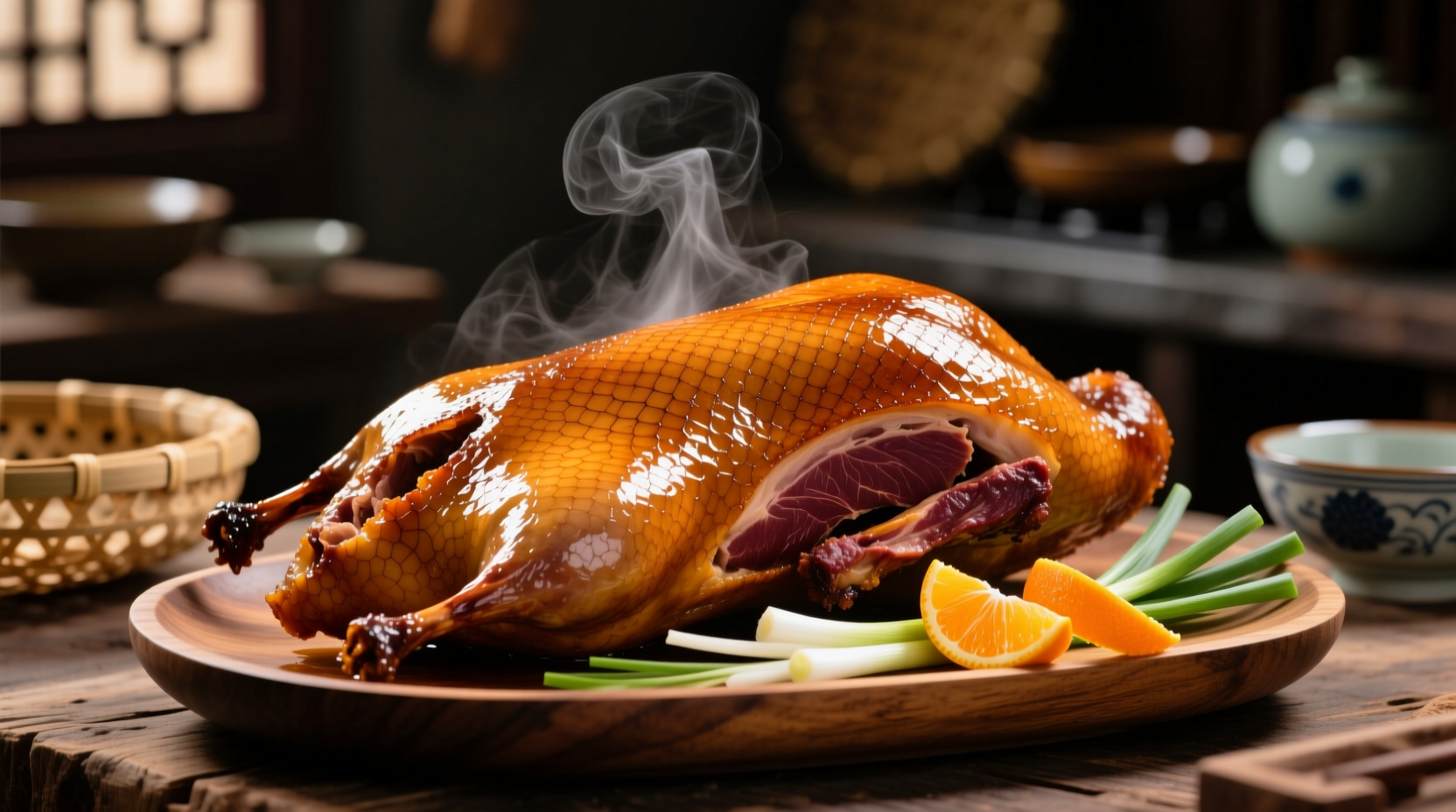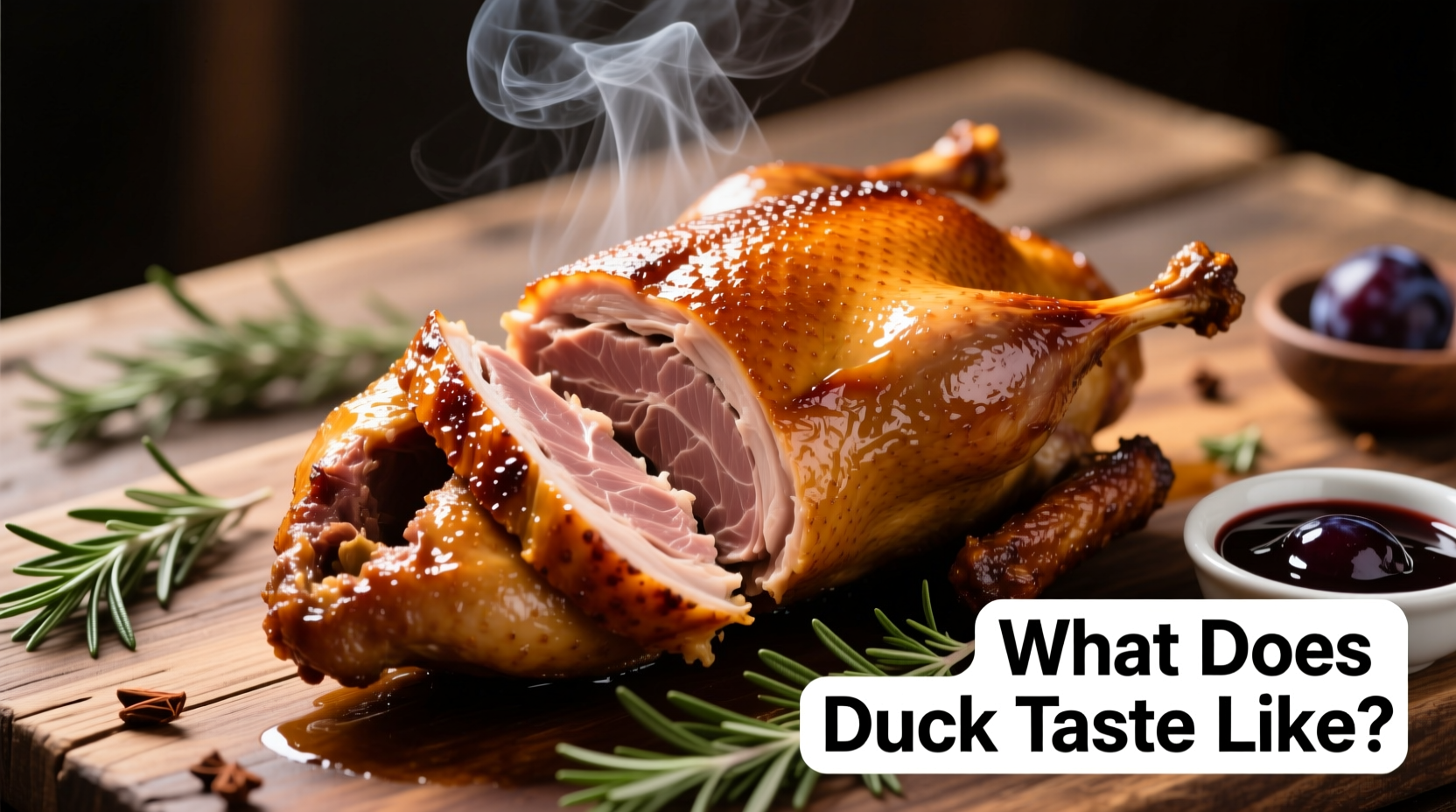If you've ever wondered what does duck taste like compared to more common poultry, you're not alone. This distinctive meat offers a culinary experience that sets it apart from chicken and turkey, with flavor characteristics that appeal to adventurous eaters while remaining accessible to those new to game meats.
Understanding Duck's Unique Flavor Profile
Duck's taste can be best described as rich, meaty, and slightly gamey—though not overwhelmingly so. Unlike chicken, which has a relatively neutral flavor, duck delivers a more pronounced taste experience that food enthusiasts often compare to a cross between beef and dark poultry meat. The higher fat content in duck (particularly in the skin and breast) creates a luxurious mouthfeel and contributes significantly to its distinctive flavor.
When properly prepared, domestic duck offers a balanced gamey note without the strong wild taste sometimes associated with game birds. The fat renders during cooking, basting the meat internally and creating that signature succulent texture that makes roasted duck taste so appealing to many diners.
Duck vs Chicken: A Direct Flavor Comparison
Understanding what duck tastes like compared to chicken helps set proper expectations. While chicken breast is lean and relatively mild, duck breast has a richer, more complex flavor profile. The difference becomes especially apparent when comparing dark meat portions:
| Characteristic | Duck | Chicken |
|---|---|---|
| Flavor Intensity | Rich, gamey, meaty | Mild, neutral |
| Fat Content | Higher (especially in skin) | Lower (particularly in breast) |
| Cooking Result | More forgiving with medium-rare options | Requires thorough cooking |
| Texture | Denser, more like red meat | Lighter, more delicate |
Factors That Influence Duck's Flavor
Several elements affect what duck tastes like when served on your plate. Understanding these factors helps explain why duck can vary significantly between preparations:
Breed and Diet Differences
Not all duck tastes the same. The most common culinary duck, Pekin (also called Long Island duck), has a milder flavor than Muscovy or wild varieties. Duck's diet significantly impacts its taste profile—ducks raised on grain-based feeds produce meat with a cleaner, less gamey flavor than those foraging in the wild.
Cooking Method Impact
The preparation technique dramatically transforms how duck tastes. Traditional French methods like confit (slow-cooking in its own fat) yield incredibly tender meat with a rich, buttery flavor. Roasting with proper fat rendering creates crispy skin and moist meat with balanced gamey notes. Improper cooking that doesn't render the fat adequately can result in greasy, overly gamey meat that disappoints first-time tasters.

Regional Duck Preparation Styles
Culinary traditions around the world have developed distinctive approaches to preparing duck, each highlighting different aspects of its flavor profile:
French Cuisine: The Art of Duck Perfection
French chefs treat duck as a premium ingredient, with techniques refined over centuries. The classic canard à l'orange balances duck's richness with citrus notes, while magret de canard (pan-seared duck breast) showcases the meat's beef-like qualities when cooked medium-rare. French culinary tradition recognizes that proper fat rendering is essential to achieving the ideal duck breast taste profile.
Chinese Culinary Tradition
In Chinese cuisine, particularly Peking duck, the preparation focuses on achieving ultra-crispy skin while maintaining moist meat. The distinctive flavor comes from the air-drying process and careful roasting technique. This preparation method creates a unique eating experience where the crispy skin provides textural contrast to the tender meat beneath.
How to Cook Duck for Optimal Flavor
Understanding what duck tastes like helps you prepare it properly. Here are key techniques to maximize its flavor potential:
Fat Rendering Process
The most crucial step in cooking duck is proper fat rendering. Start with skin-side down in a cold pan, allowing the fat to slowly melt out. This prevents greasiness and develops that desirable crispy texture. Save the rendered duck fat—it's a prized cooking medium with a rich flavor that enhances potatoes, vegetables, and other dishes.
Cooking Temperature Guidelines
Unlike chicken, duck breast can be cooked to medium-rare (135°F internal temperature) for optimal tenderness and flavor. Overcooking duck breast beyond 145°F typically results in dry, tough meat. The legs and thighs benefit from slower, longer cooking methods like braising to achieve fork-tender results.
Perfect Pairings for Duck's Distinctive Flavor
Certain ingredients naturally complement what duck tastes like, enhancing its rich profile without overwhelming it:
- Fruit sauces: Cherries, oranges, and plums provide sweet-tart contrast
- Earthy elements: Mushrooms, root vegetables, and truffle enhance its savory notes
- Acidic components: Red wine reductions and balsamic cuts through richness
- Spice pairings: Five-spice powder, thyme, and juniper berries complement without dominating
Addressing Common Duck Flavor Concerns
Many first-time duck eaters express concerns about potential gaminess. Proper sourcing and preparation significantly impact the final flavor:
Domestic duck from reputable sources has a much milder flavor than wild duck. When cooked correctly with attention to fat rendering, the gamey notes become a pleasant complexity rather than an overwhelming characteristic. If you're sensitive to stronger flavors, starting with Pekin duck prepared using traditional French methods provides the most approachable introduction to what duck tastes like.
Conclusion: Embracing Duck's Unique Culinary Profile
Duck offers a distinctive culinary experience that bridges the gap between poultry and red meat. Its rich, gamey flavor profile—when properly prepared—delivers a satisfying eating experience that many find more interesting than standard chicken. Understanding the factors that influence how duck tastes empowers you to select, prepare, and enjoy this versatile meat to its fullest potential.











 浙公网安备
33010002000092号
浙公网安备
33010002000092号 浙B2-20120091-4
浙B2-20120091-4